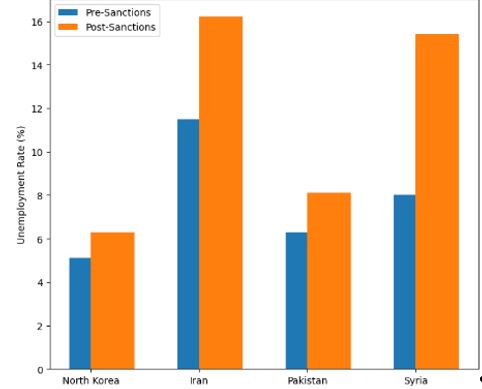Economic Sanctions and Their Unintended Consequences: A Critical Examination of U.S. Policies Toward Syria, Iran, Pakistan, and North Korea
Keywords:
Political Dynamics, Sanctions, Policy, Civilian Impact, Targeted Nations, Cuba, Iran, SyriaAbstract
superpowers, notably the US, have been more vocal and frequent users of economic sanctions this century. Nations and organizations that do not meet US-established standards in the areas of nuclear technology, weapon production, and international conflict resolution are subject to economic embargoes and penalties imposed by the US. But it has often failed to influence the sanctioned nations to change their ways. An example of how American sanctions have failed is the sanctions programs that have been implemented against Syria, Pakistan, Iran, and North Korea. The negative consequences of the United States sanctions policy on the nations it targets are examined in this qualitative research essay, which also examines the political reasons for it. It delves further into the topic by looking at Trump's harsh sanctions program, which is viewed as a first in American economic penalty history. According to the results, targeted penalties are a controversial and fruitless policy tactic. Punishments like this kill innocent people and make it harder for them to get food, medicine, and jobs. Furthermore, penalties have a negligible effect on states when seen in a global context. A state starts looking for new trade partners when one market refuses to do business with it.








